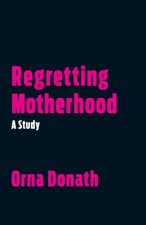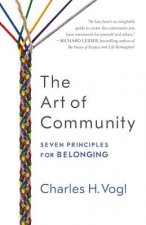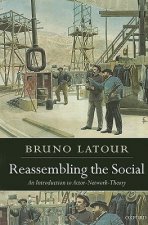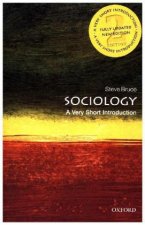
Kód: 01251996
Initiating Ethnographic Research
Autor Stephen L Schensul
Book 2 of the Ethnographer's Toolkit, Initiating Ethnographic Research: A Mixed Methods Approach, is the first book of its kind. Unlike texts that describe and detail methods for doing ethnographic and qualitative research once in ... celý popis
- Jazyk:
 Angličtina
Angličtina - Vazba: Brožovaná
- Počet stran: 268
Nakladatelství: AltaMira Press,U.S., 2012
- Více informací o knize

Mohlo by se vám také líbit
-

Cognitive Enhancement
4283 Kč -

Doing Good Is Simple
486 Kč -

Good News, Bad News
411 Kč -

Law and Practice Relating to Charities: First Supplement to the Fourth Edition
7114 Kč -

French Rugby Football
5267 Kč -

Developments in Surface Contamination and Cleaning - Vol 2
6583 Kč -

Phospholipids in the Nervous Sytem
1828 Kč
Dárkový poukaz: Radost zaručena
- Darujte poukaz v libovolné hodnotě a my se postaráme o zbytek.
- Poukaz se vztahuje na celou naši nabídku.
- Elektronický poukaz vytisknete z e-mailu a můžete ihned darovat.
- Platnost poukazu je 12 měsíců od data vystavení.
Více informací o knize Initiating Ethnographic Research
Nákupem získáte 178 bodů
 Anotace knihy
Anotace knihy
Book 2 of the Ethnographer's Toolkit, Initiating Ethnographic Research: A Mixed Methods Approach, is the first book of its kind. Unlike texts that describe and detail methods for doing ethnographic and qualitative research once in the field, Book 2 explores in depth the many critical issues that ethnographic researchers need to consider before going to the field and in the earliest stages of the field experience. These include preparation of self, establishing relationships that ensure access to the field, and steps in the construction of a formative theoretical model that will inform the entire research process from start to finish. Following guidelines established in Book 1, the first three chapters describe the reasons why ethnography should be considered a mixed methods approach to social science research. They discuss why theory is important in guiding a study, and the important institutional and personal preparations required to enter a field setting and begin work. Additional chapters debunk the idea that ethnographers always enter the field with their minds a "clean slate" in terms of what they will find during their investigation. They show why and how researchers can develop initial theoretical models based on local knowledge and literature reviews. Ethnography uses a holistic approach, so such models take into consideration both individual/population and systemic or structural considerations. They lead the way to integrating ecological, empirical, critical, and interpretivist approaches into a comprehensive analysis of a dynamic system. Two chapters also provide detailed examples to illustrate the connection between steps in the modeling process, creation of observational measures, and steps in data collection--from most open-ended kinds of interviewing and observation to the kind of highly structured ethnographic surveying described in Book 3. Extensive illustrative case examples are included. The final chapter shows how the modeling process can be extended to guide the development of interventions and change strategies at multiple levels-a process that should be part of any research program. A wide variety of diagrams, instructions, examples, and illustrations make the topics and processes covered in Book 2 easy to read and understand, even by novice researchers. Overall, Book 2 offers a unique mixed methods lens through which to build theory by engaging in research modeling, to enter the field, to set up to gather data, and to anticipate influencing change.
 Parametry knihy
Parametry knihy
Zařazení knihy Knihy v angličtině Society & social sciences Sociology & anthropology Sociology
1776 Kč
- Plný název: Initiating Ethnographic Research
- Autor: Stephen L Schensul
- Jazyk:
 Angličtina
Angličtina - Vazba: Brožovaná
- Počet stran: 268
- EAN: 9780759122017
- ISBN: 0759122016
- ID: 01251996
- Nakladatelství: AltaMira Press,U.S.
- Hmotnost: 436 g
- Rozměry: 154 × 227 × 20 mm
- Datum vydání: 13. December 2012
Oblíbené z jiného soudku
-

Sex at Dawn
368 Kč -

Death and the Afterlife
454 Kč -

Cartoon Guide to Statistics
466 Kč -

Why Love Hurts - A Sociological Explanation
442 Kč -

Past Mortems
249 Kč -

Basic and Advanced Focus Groups
1076 Kč -

Fair Play Deck
505 Kč -

Intimate Communion
326 Kč -

Tragedy and Hope
1127 Kč -

Small Is Beautiful
276 Kč -

More Than Two
603 Kč -

Regretting Motherhood
350 Kč -

Social Intelligence
358 Kč -

True Believer
334 Kč -

Art of Community: Seven Principles for Belonging
485 Kč -

NINETY PERCENT OF EVERYTHING
420 Kč -

Reassembling the Social
1056 Kč -

Family and Civilization
538 Kč -

Book of Tea
249 Kč -

Building and Dwelling
410 Kč -

Constructing Grounded Theory
1235 Kč -

Surrendered Wife
276 Kč -

Of Woman Born
376 Kč -

Cruel Optimism
748 Kč -

Death and the Afterlife
803 Kč -

What Kinship Is-And Is Not
481 Kč -

Social History of Sexual Relations in Iran
1426 Kč -

Post-Adoption Blues
437 Kč -

Dissecting the Danchi
3611 Kč -

Birth Of A Mother
556 Kč -

New Old Fashioned Ways
402 Kč -

Platform Society
1004 Kč -

Secret Meaning of Money - How to Prevent Financial Problems from Destroying Our Most Intimate Relationships
982 Kč -

Death Tourism
1009 Kč -

Braving the Wilderness
234 Kč -

Eroticism
303 Kč -

Marriage, a History
465 Kč -

Bushido the Soul of Japan
289 Kč -

Intercourse
363 Kč -

Ideology and Utopia
454 Kč -

Population Control
357 Kč -

Class Ceiling
324 Kč -

Chrysanthemum and the Sword
437 Kč -

Smoke Gets in Your Eyes
286 Kč -

Sociology: A Very Short Introduction
249 Kč -

Being Mortal
306 Kč -

Theory of the Leisure Class
303 Kč -

Social Construction of Reality
303 Kč -

Bushido: The Soul Of Japan
435 Kč
Osobní odběr Praha, Brno a 12903 dalších
Copyright ©2008-24 nejlevnejsi-knihy.cz Všechna práva vyhrazenaSoukromíCookies



 Vrácení do měsíce
Vrácení do měsíce 571 999 099 (8-15.30h)
571 999 099 (8-15.30h)